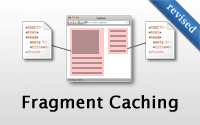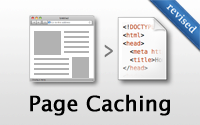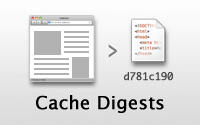Categories
- Active Record
- Active Resource
- Active Support
- Administration
- Ajax
- APIs
- Authentication
- Authorization
- Background Jobs
- Caching
- Code Walkthrough
- Controllers
- Debugging
- Deployment
- eCommerce
- Forms
- Mailing
- Models
- Performance
- Plugins
- Production
- Rack
- Rails 2.0
- Rails 2.1
- Rails 2.2
- Rails 2.3
- Rails 3.0
- Rails 3.1
- Rails 3.2
- Rails 4.0
- Refactoring
- Routing
- Search
- Security
- Testing
- Tools
- Views
Fragment Caching (revised)
If you need to cache a certain section of a page instead of the entire page, fragment caching is the way to go. Learn how caching is stored, how to create auto expiring caches, and more.
(9 minutes)
Dynamic Page Caching (revised)
Page caching is great for speeding up the performance of a page, but what if it contains user-specific content? Learn how to load content in dynamically through JavaScript in this episode.
(7 minutes)
Memoization (revised)
Memoization is a convenient way to cache a method's response. Here I show several ways to accomplish this from scratch since the ActiveSupport::Memoizable module has been deprecated.
(9 minutes)
Page Caching (revised)
Page caching is an efficient way to cache full content to be served by the front-end web server. Learn how to deal with pagination, expiration with sweepers, and user-specific content in this episode.
(9 minutes)
Autocomplete Search Terms
Learn how to add autocompletion to a search form and improve performance using Rack middleware, caching and switching from SQL to Redis.
(17 minutes)
Cache Digests
The cache_digests gem (also included in Rails 4) will automatically add a digest to the fragment cache key based on the template. If a template changes the cache will auto-expire. But watch out for the gotchas!
(7 minutes)






